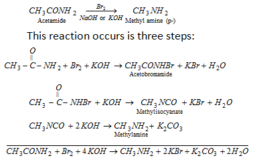Salt hydrolysis

source : Greater minds Tutors
Salt hydrolysis-
The phenomenon involving interaction of cations or anions ( or both) of a salt with the H+ or OH– ions of water leading to the formation of acidic or alkaline or sometimes even neutral solution is called salt hydrolysis .
The nature of cation or anion of the salt determines the nature of solution which may be acidic or basic . Salts are divided into four categories-
1) Hydrolysis of the salt of strong acid and weak base –
The solution of such a salt is acidic in nature . The cation of salt which has come from weak base is reactive . It reacts with water to form weak base and H+ ions.
Ex . NH4Cl , CuSO4 , AlCl3 , FeCl3 , CuCl2 etc.
NH4Cl ———-> NH4+ + Cl–
NH4+ + H2O ⇌ NH4OH + H+
weak base
Thus H+ concentration increases and the solution becomes acidic .
Consider a salt ‘ MA ‘ formed by weak base ‘MOH’ and strong acid ‘HA’.
M+ + H2O ⇌ MOH + H+
weak ion
Before hydrolysis C 0 0
After hydrolysis C ( 1-h) Ch Ch
Kb = [MOH][H+] / [M+] [H2O]
Water is present in excess hence can be regarded as constant.
Kb[H2O] = [MOH][H+] / [M+]
Kb[H2O] = Kh
Kh = [MOH][H+] / [M+] ————– eq 1
Kh = Ch x Ch /C (1-h) = Ch2/(1-h)
because (1-h) is nearly equal to one therefore ,
Kh = Ch2
C = concentration of salt
h = degree of hydrolysis
H2O ⇌ H+ + OH–
We know,
Kw = [H+][OH–] ————–eq 2
For weak base,
MOH ⇌ M+ + OH–
Kb = [M+][OH–]/[MOH] ——— eq 3
From eq (2) and eq ( 3)
Kw / Kb = [H+] [OH–] [MOH] /[M+][OH–]
= [H+] [MOH] /[M+]
because,
Kh = [MOH][H+] / [M+]
Thus,
Kw / Kb = Kh
Kh = Kw/Kb
Kh = Ch2
h = √ (Kh/C)
putting the value of Kh
h = √ (Kw/Kb.C)
[H+] = h x C
putting the value of ‘h’
[H+] = C √ (Kw/Kb.C)
[H+] = √ (Kw.C/Kb)
Taking log ,
log [H+] = 1/2 log Kw + 1/2 log C – 1/2 log Kb
because , -log [H+] = pH , -log Kw = pKw,
-pH = – 1/2 pKw + 1/2 log C + 1/2 log pKb
pH = 1/2 pKw – 1/2 log C – 1/2 log pKb
pKw = 14
pH = 7 – 1/2 log C – 1/2 log pKb
“According to above expression, pH of the solution will always be smaller than 7, it means an aqueous solution of a salt of strong acid and weak base is always acidic.”







